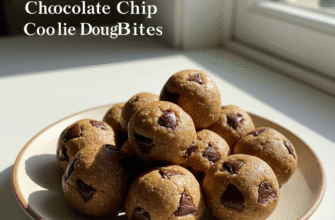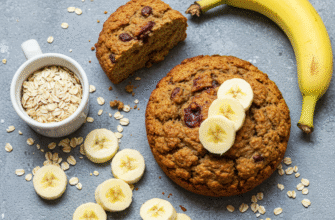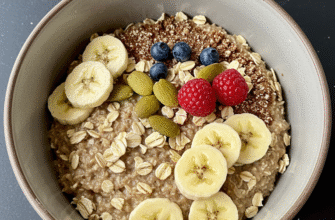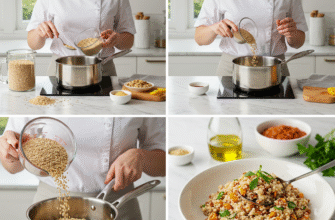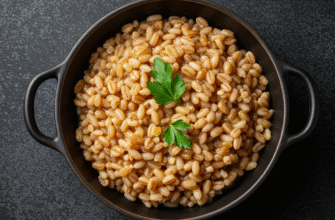Coconut oil has certainly made waves, moving from a tropical staple to a global pantry and bathroom cabinet regular. Its versatility is pretty impressive, finding uses far beyond just frying up some vegetables. People are drawn to its natural origins and the sheer variety of ways it can be incorporated into daily life, from the kitchen to personal care routines. It’s derived from the flesh of mature coconuts, and depending on how it’s processed, you get different types with slightly different properties and uses.
Coconut Oil in the Kitchen
One of the most common ways people use coconut oil is in cooking. Its unique fatty acid profile makes it quite stable at higher temperatures, particularly the refined variety. This stability means it doesn’t break down and oxidize as quickly as some other oils when heated.
Cooking and Baking
Virgin coconut oil brings a distinct tropical flavor and aroma, which can be fantastic in certain dishes. Think curries, baked goods like macaroons, or even blended into smoothies for a creamy texture and exotic taste. If you’re making granola or energy bites, virgin coconut oil adds both binding power and that characteristic coconut note.
Refined coconut oil, on the other hand, has a much more neutral flavor and a higher smoke point, generally around 400°F (204°C). This makes it a better all-purpose cooking oil for sautéing, stir-frying, and even roasting when you don’t want the coconut flavor to overpower your dish. It’s also often preferred for baking when a neutral taste is desired. You can often substitute it 1:1 for butter or other oils in recipes, though its solid state at room temperature (below 76°F or 24°C) needs to be considered – melt it first for most applications unless creaming it like butter.
Beyond the Frying Pan
Some folks enjoy adding a teaspoon of virgin coconut oil to their morning coffee or tea. Often associated with bulletproof coffee, it adds creaminess and a source of fats. Others blend it into smoothies or drizzle melted oil over popcorn instead of butter. Remember, it’s quite calorie-dense, so using it thoughtfully within your overall dietary pattern is key.
Skin and Hair Care Applications
Coconut oil’s benefits aren’t limited to the kitchen. Its composition makes it a popular ingredient in natural beauty routines.
For Your Skin
Rich in fatty acids, particularly lauric acid, coconut oil is known for its moisturizing properties. Many people find it effective for combating dry skin, especially on tougher areas like elbows, knees, and heels. After a shower, applying a small amount to damp skin can help lock in moisture.
It also works surprisingly well as a natural makeup remover. Gently massaging a small amount onto your face can help dissolve even stubborn waterproof mascara and foundation. Wipe it away with a soft cloth or cotton pad, then follow up with your regular cleanser to remove any residue. Some individuals with very oily or acne-prone skin might find it comedogenic (pore-clogging), so it’s wise to patch-test first or use it sparingly on the face.
You can even use it as a base for simple DIY body scrubs. Mix melted coconut oil with sugar or coarse sea salt and perhaps a drop or two of essential oil (ensure it’s skin-safe) for an exfoliating treat.
Nourishing Your Hair
Coconut oil has a long history of use in hair care in many cultures. Its molecular structure allows it to penetrate the hair shaft to some extent, potentially helping to moisturize from within and reduce protein loss during washing.
Many people use it as a pre-shampoo treatment or a deep-conditioning mask. Warm a small amount in your hands until it liquefies, then massage it through dry hair, focusing on the mid-lengths and ends. You can leave it on for 30 minutes or even overnight (protect your pillowcase!) before shampooing and conditioning as usual. Be thorough with washing to avoid greasy residue.
A tiny dab smoothed over dry ends can also help tame frizz and add a bit of shine. Again, start with a very small amount – a little goes a long way, and too much can make hair look oily.
Other Interesting Uses
The applications don’t stop there. Coconut oil has found its way into various other wellness and household practices.
Oil Pulling
Oil pulling is an ancient Ayurvedic practice that involves swishing oil around in your mouth. Coconut oil is a popular choice for this. The traditional belief is that swishing helps ‘pull’ bacteria from the mouth. You typically swish about a tablespoon of oil for 10-20 minutes on an empty stomach, then spit it out (into the trash, not the sink, to avoid plumbing issues!) and rinse thoroughly. While proponents claim various benefits, it’s generally seen as a complementary oral hygiene practice alongside regular brushing and flossing.
Verified Information: Coconut oil is particularly rich in Medium-Chain Triglycerides (MCTs). These types of saturated fats are metabolized differently than the long-chain fatty acids found in most other fats and oils. This unique structure is linked to some of its properties both in cooking and potential wellness applications, though moderation is still advised.
Natural Deodorant Base
Because some components of coconut oil are thought to have properties that can affect microbes, it’s sometimes used as a base in homemade deodorants, often mixed with baking soda, arrowroot powder, and essential oils. Results vary from person to person.
Minor Household Tasks
Beyond personal care, a dab of coconut oil can sometimes be used to condition wooden cutting boards or utensils. It can also help loosen sticky labels or even provide a temporary shine to dull leather shoes (test in an inconspicuous area first).
Choosing and Using Coconut Oil Wisely
When shopping for coconut oil, you’ll mainly see two types:
- Virgin (or Extra Virgin): Made from fresh coconut meat, usually through methods like cold-pressing. It retains the coconut flavor and aroma and contains more antioxidants. Best for low-to-medium heat cooking where you want the coconut flavor, or for skin/hair care.
- Refined: Made from dried coconut meat (copra). It’s typically bleached and deodorized, resulting in a neutral smell and taste, and a higher smoke point. Better for high-heat cooking and applications where you don’t want coconut flavor.
Regardless of the type, opt for brands that clearly state their processing methods and ideally come in glass jars. Store it in a cool, dark place.
While coconut oil has many potential uses, it’s important to remember it’s very high in saturated fat. Like any fat source, it should be consumed in moderation as part of a balanced and varied diet. It’s not a magic bullet, but rather a versatile natural product that can be a useful addition to a healthy lifestyle when used appropriately – whether that’s in your stir-fry, as a hair mask, or to soothe dry skin.


